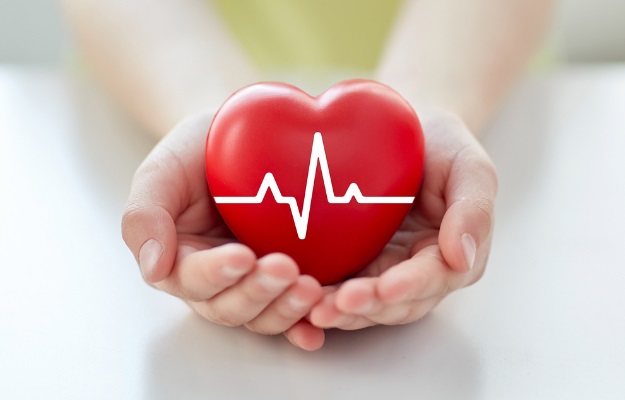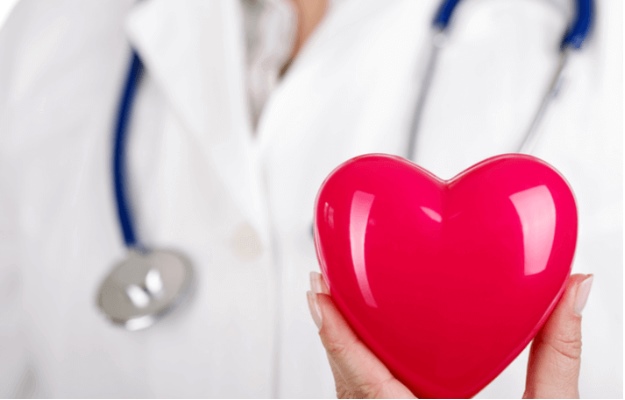Blood pressure and heart function are closely related. It is the heart that pumps blood for the whole body. Even a slight disturbance in the work of these two can affect their physical health. On the other hand, when someone has a heart attack, in that situation the blood pressure may be more or less, but it does not mean that the change in blood pressure is a sign of a heart attack itself. Changes in blood pressure can also be due to other reasons.
If you click on the link given here, you will know how ayurvedic treatment for heart disease is possible.
Today in this article, you will know whether there is a change in blood pressure at the time of heart attack or not -
(Read More - What to Do After Heart Attack)
- Blood pressure during a heart attack
- Blood pressure condition at the time of heart attack
- Is a change in blood pressure a symptom of a heart attack?
- What is normal and high blood pressure?
- Takeaway
Blood pressure during a heart attack
When the heart pumps blood, it is called blood pressure and it circulates throughout the body. During a heart attack, the flow of blood to a part of the heart gets blocked. Sometimes due to this, the blood pressure decreases. At the same time, in some cases, there is no change in blood pressure during a heart attack, while in some cases the blood pressure also increases. Nothing can be said in advance about the change in blood pressure during a heart attack, so doctors do not include it in the symptoms of a heart attack.
(Read More - How long does a heart attack last without treatment)
Blood pressure condition at the time of heart attack
When the blood flow is completely blocked, there is a lack of oxygen in the heart muscle. Because of this only heart attack comes. Blood pressure can increase, decrease or remain normal during a heart attack. It depends on how the body is reacting. Come, let us know in detail what happens when blood pressure increases and decreases during a heart attack -
Increased blood pressure
At the time of a heart attack, the blood pressure of many people increases. This increased blood pressure is called hypertension. The reason behind this is the release of hormones like adrenaline. When a situation of extreme danger approaches, the fight response is triggered, which releases hormones. This automatically makes the heart beat faster.
Due to a heart attack, the sympathetic nervous system also goes on overdrive, due to which the condition of increasing blood pressure comes. The sympathetic nervous system is responsible for the fighting response.
(Read More - What to Eat After Heart Attack)
Low blood pressure
Many times the blood pressure also decreases at the time of heart attack. This reduced blood pressure is called hypotension. During a heart attack, the blood going toward the heart is completely stopped. It can also block or kill the tissue that makes up the heart muscle. These stagnant or dead tissues reduce the amount of blood, which makes the heart unable to pump blood to other parts of the body.
The vasovagal response is triggered in some people at the time of a heart attack. This response is the nervous system's response to a trigger such as excessive stress or pain. This also lowers blood pressure and may cause fainting. When the parasympathetic nervous system responsible for the body's relaxation goes on overdrive, it can also lower blood pressure.
(Read More - Heart attack in young adults)
Is a change in blood pressure a symptom of a heart attack?
No, sometimes blood pressure may increase or decrease due to a heart attack, but a change in blood pressure does not necessarily mean a heart attack. To detect a heart attack, it is important to pay attention to all the symptoms. Heart attacks can have many symptoms or only a few or none at all. The most common symptom of heart attack includes chest pain. In addition, symptoms of a heart attack include a feeling of pressure or tightness near the chest, pain in the arm, cold sweat, pain in the stomach and jaw, pain in the neck and upper back, vomiting, dizziness, fainting, and shortness of breath. problem etc.
(Read More - Things That Reduce Risk of Heart Disease)
What is normal and high blood pressure?
Blood pressure is normal or high, it is detected in the following way -
- 'Normal' systolic blood pressure should not go above 120 mmHg and 'normal' diastolic blood pressure should not go above 80 mmHg, this is normal blood pressure.
- A reading of 140 mmHg and 90 mmHg or above is considered high blood pressure.
- If the systolic blood pressure reaches above 180 mmHg and the diastolic blood pressure reaches above 110 mmHg, then it is counted in an emergency.
(Read More - Heart Problem Symptoms in Females)
Takeaway
Blood pressure can change at the time of a heart attack. It can be low, high, or normal. It is not possible to predict in advance what will be the condition of blood pressure at the time of a heart attack. Similarly, high or low blood pressure does not mean that a heart attack can occur. It can never be counted among the symptoms of a heart attack.
(Read More - Does Tea Help Your Heart)
Doctors for Does blood pressure change during a heart attack?

Dr. Manju
Cardiology
10 Years of Experience

Dr. Farhan Shikoh
Cardiology
11 Years of Experience

Dr. Amit Singh
Cardiology
10 Years of Experience

























